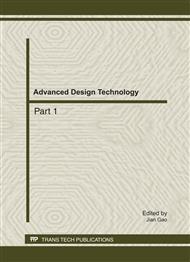p.1099
p.1106
p.1111
p.1116
p.1122
p.1129
p.1134
p.1139
p.1143
Optimal Design of a Pin-Fin Heat Sink Using a Surrogate-Assisted Multiobjective Evolutionary Algorithm
Abstract:
In this work, performance enhancement of a multiobjective evolutionary algorithm (MOEA) by integrating a surrogate model to the design process is presented. The MOEA used in this work is multiobjective population-based incremental learning (PBIL). The bi-objective design problem of a pin-fin heat sink (PFHS) is posed to minimize junction temperature and fan pumping power while meeting design constraints. A Kriging (KRG) model is used for improving the performance of PBIL. The training points for constructing a surrogate KRG model are sampled by means of a Latin hypercube sampling (LHS) technique. It is shown that hybridization of PBIL and KRG can enhance the search performance of PBIL.
Info:
Periodical:
Pages:
1122-1128
Citation:
Online since:
August 2011
Authors:
Price:
Сopyright:
© 2011 Trans Tech Publications Ltd. All Rights Reserved
Share:
Citation:


